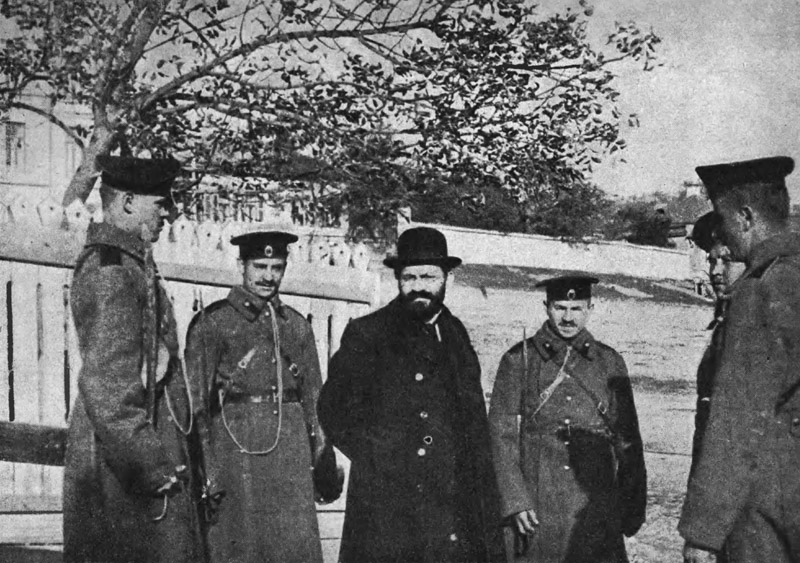Australia/Israel Review
The Last Word: Blood Libel and Mass Murder
Oct 30, 2013 | Jeremy Jones

Jeremy Jones
In 1911, Mendel Beilis was arrested and charged with murdering a Christian child for the purpose of using the boy’s blood in Jewish religious rituals.
Mendel Beilis fought the absurd allegation and, in 1913, one of the most important societal trials of the 20th century took place in the main courthouse of Kiev, now the capital of Ukraine.
It was not just Mendel on trial – but Judaism and the entire Jewish people.
The fictional account of the trial by Bernard Malamud, The Fixer, has given the events a place in popular culture, but that novel did not convey the way in which the trial kept so many in Europe and beyond enthralled as the unassuming victim of antisemitism fought, and overcame, incredible bigotry and adversity.
Mendel Beilis lived out the final part of his life in the USA, passing away prior to the Nazi takeover of the city in which he stood trial, which is the site of Babi Yar, the place of mass murder of the Jews of Kiev depicted so graphically in the writings of Yevgeny Yevtushenko.
In 2013, a hundred years after Mendel Beilis’ exoneration, I had the honour to visit Babi Yar, as well as the huge public square outside the courthouse in which he was tried, in the company of Jay Beilis, Mendel’s grandson. Jay, a passionate, profoundly decent New Yorker, was the Guest of Honour at a significant international conference on antisemitism, which was convened in Kiev with the support of the Organisation for Cooperation ans Security in Europe and with representatives from 40 countries.
The legacy of the Beilis trial, the way antisemitism has evolved and continues to evolve and the current challenges presented by anti-Jewish ideologies, propaganda and actions, were discussed by scholars, journalists, politicians, policy makers, religious leaders and social activists.
Prejudice and discrimination against Jews was considered as a stand-alone phenomenon as well as in association with bigotry against other religions, and as both a pretext for anti-Israel politics and as a by-product of the Arab-Israel conflict.
With most of the participants from Europe, the growth of extreme right-wing nationalist groups and vitriol and violence from some Muslim and Arab groups across the continent, vigorous but respectful exchanges of views took place on a number of issues. The impact of so-called “Double Genocide” – conflating the suffering of victims of Nazism and Communism – the will and effectiveness of governments in protecting their citizens from discrimination, abuse and attack; and the way in which antisemites become involved in debates on the Arab-Israeli conflict and issues such as circumcision and ritual slaughter of animals for human consumption were all debated.
I travelled from Kiev to Vilnius, a city once known as the Jerusalem of Europe due to its amazingly vibrant Jewish religious, intellectual and cultural life.
Well over 90% of the Jewish population of Lithuania were the victims of Nazis and their collaborators, and it is only in recent times, after the defeat of Communism, that those who survived, and their descendants, have had the opportunity to properly document the past and educate later generations.
The Jewish people I met during my visit were quite remarkable, willing to carry on their shoulders an enormous weight of history and a consciousness of their responsibility to keep memories, and spirit, alive.
On the tombstone of Mendel Beilis, his grandson revealed, there is a long and powerful inscription.
It reads in part: “Pay attention to this grave/Here lies a holy person, a chosen man; Pay tribute to his pure and guiltless soul/Who dwells in the shadow of The Lord in the heights of heaven.”
In Kiev, and in Vilnius, terrible persecutions and suffering of Jews, whose only “crime” was to be Jews, permeates the past and impacts on the present.
The best way we, Jews and non-Jews, can “pay tribute” to their souls is to be vigilant and vigorous in our telling the world of their lives and the evils done by their persecutors.
Tags: Antisemitism






